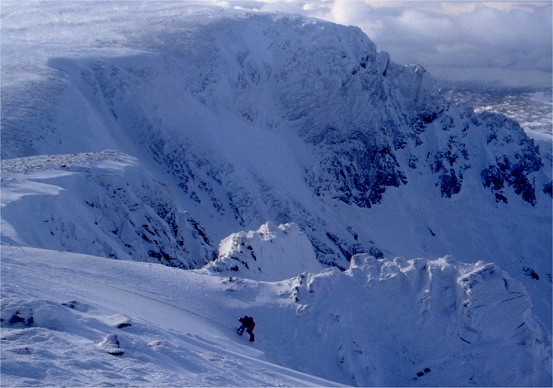
Last winter there was a big increase in the early season deaths of UK winter climbers, all of them taking place around Coire an t-Sneachda in the Northern Cairngorms. The British Mountaineering Council pointed out that although each incident occurred in different circumstances, one common factor was the proximity and ease of access to the Coire.
“It is important to recognize that although it is relatively easy to access the Northern Corries of the Cairngorms, the terrain is as serious as any in Scotland and the full range of mountaineering and climbing skills are needed to manage the risks involved. Some of the skills are technical but equally important are judgement and decision-making. It takes time to acquire these skills.”
Part of their statement focused on four factors that are of particular importance to climbers.
This short article aims to expand on these factors, in the hope of possibly reducing the risk involved in winter climbing in the UK.
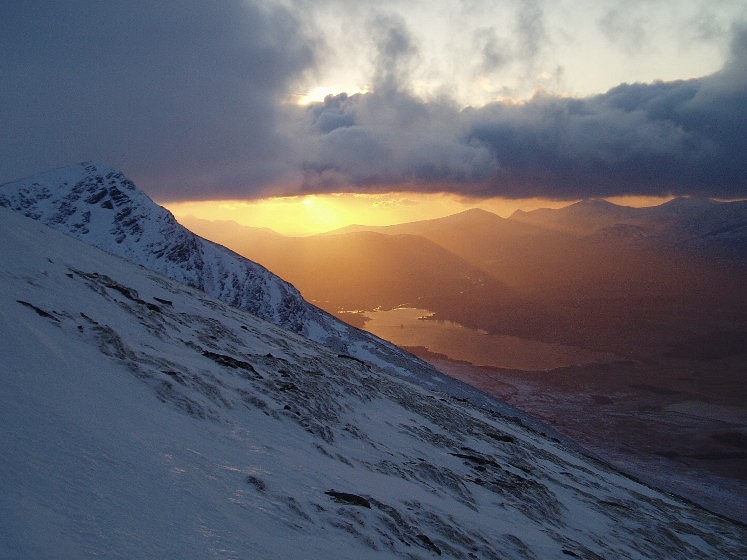
Pay heed to the weather forecast and avalanche report and choose objectives that are appropriate.
One of the things you notice about good winter climbers in the UK is their knowledge of winter conditions and weather.
Neither should be based on the day you plan to climb, but on the days or weeks before, and ideally you should make a note of weather and conditions every day through out the winter. This could be nothing more than setting your web browser so that the first thing you see is the weather and conditions. Many websites are a great resource for conditions, with Scottish Avalanche Service being by far the most valuable, along with the two associated blogs for Lochaber and the Northern Cairngorms.
Making a habit of checking these sites (whether you plan to climb or not) will both increase your understanding of how conditions on the ground have developed, how quickly the change, and more importantly help you to pick up a great deal of valuable beta on how to avoid being killed in an avalanche.
One of thing to note is to take heed of what the SAIS people say. They are not health and safety obsessed civil servants. They are ballsy climbers who push it, so when they say stop and go down the wall, drink tea in Aviemore, or buy some new picks then listen up.
Try and read up on avalanches and weather safety, with books like Chance in a million? and The Cloud Spotters guide being highly recommended. If you have the type of learning process that work well by using books then there are tons of great books out there, both old and new, with Martin Moran's Scotland's Winter Mountains still about the best all round guide. If you're not a book type then have a look out for instructional DVD's like the BMC's Winter Essentials. Hopefully YouTube will start having more technical content for climbers soon.
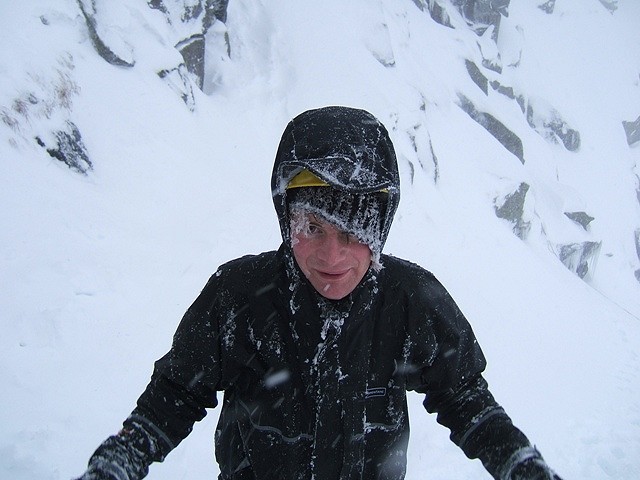
Be well equipped with both warm clothing and the appropriate technical gear.
If you read all the clothing articles on my website Psychovertical.com then there is no way you will die from hypothermia. Remember that Scottish conditions are potentially 100% more extreme then those found in the Alps, in fact they are more like Patagonia, with super high winds, high humidity, snow and fast changing ground conditions. You have to treat every trip like a mini expedition. THERE ARE NO ROADSIDE WINTER VENUES!
If you're new to UK winter climbing expect the worse (always carry bothy bag, food, head-torch. spare clothes). Spend the summer and those bad weather days out on the hill building up your fitness (fatigue plays a big part in many climbing rescues), and more importantly your navigation skills. Go on a navigation course, buy another book, learn how to use a GPS. These skills will save your bacon, and can even be fun!
Don Whillians claimed that his biggest asset once he went to the greater ranges was fell bashing in the mist in the Peak District, teaching him to navigate and push on in bad weather.
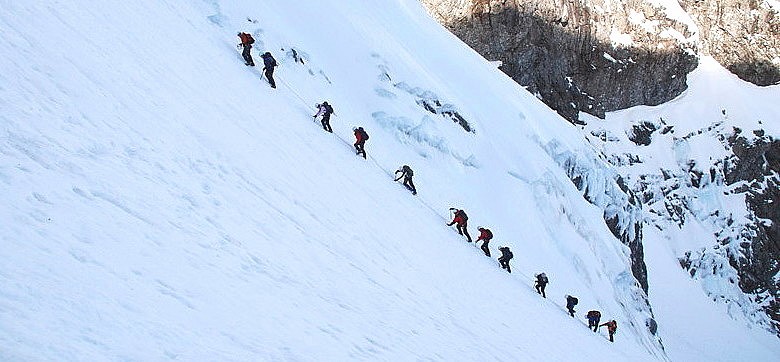
Adopt a progressive approach to adventure. Develop skills incrementally by choosing objectives that build on previous experience.
The two most dangerous periods in a climbers life are when they are new to winter climbing but super keen, and when they believe they are so good they can let down their guard and ignore the warning signs.
If you're new to winter climbing find some one who will take you along and pass on some skills. If that's not possible then I would highly recommend either going on a winter climbing course at PYB or Glenmore Lodge, or better still employ an experienced guide for a weekend or week and tell them you want to learn as much as possible (the cost isn't that high between two, and for example people like Rich Cross or Al Powell would no doubt pass on a couple of years of knowledge in a single climb).
Doing this will save you a lot of time and money learning those initial skills, and help you step over that dangerous gap between your ambition and your dream climbs.
Another option is to try and get on a subsidised Conville Course, which will speed up your winter skills.
If that's not possible then try and progress slowly and carefully, and use the web to get advice from others on good safe climbs to try (take any advice with a big pinch of salt unless you know the advice is trustworthy).
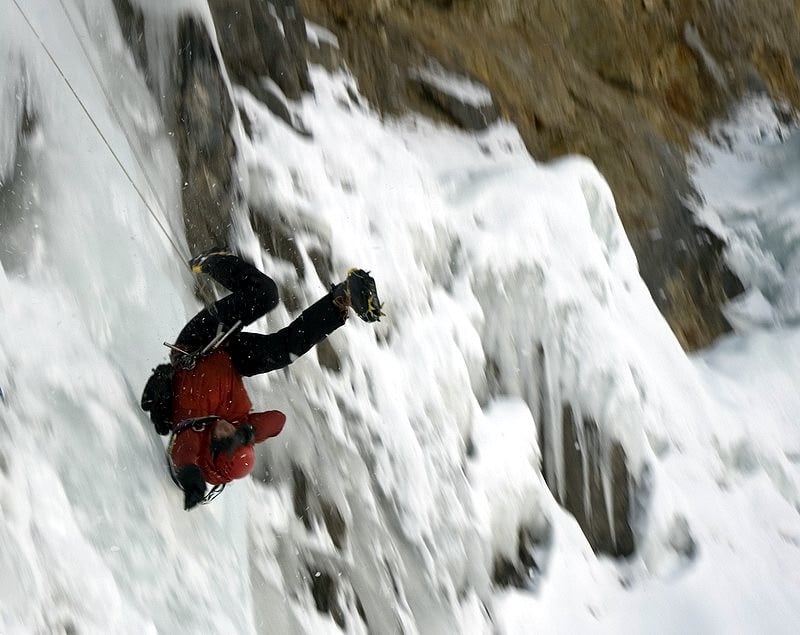
Don't be influenced by the hype that surrounds adventure activities in the 21st century. It is not always best to “go for it”.
Learning when to “go for it” and when to “go home” is something that comes with experience and all experienced climbers will attest to having many near misses. Remember that good judgement comes from experience and experience comes from bad judgement. I would never want to dissuade anyone from going after their dreams, but you must always keep your ego and ambition in check, think about the consequences of every action, expect the worse, be paranoid and most importantly of all stick to the buttresses.
Finally UK winter climbing can be - and often is - the most extreme test for any climber, an environment that will incapacitate anyone who is found wanting very quickly. It is testament to our tiny hills and big weather that although we have no Alps or big walls, the skills that are demanded from these wild places have allowed the British climber to punch above their weight for nearly a century. Remember that when you're 'just' going to the Northern Corries.
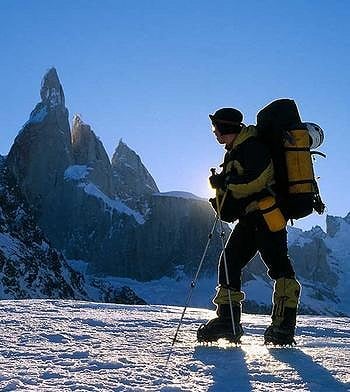
- Andy is sponsored by Berghaus and has a Berghaus Team Blog
- Andy is also sponsored by: Petzl, Ortlieb, Beal, La Sportiva, Exped, Julbo, Jetboil, Faders, Outdoor research, Tubus and Gripmaster. You can find out more about these brands at the Lyon Equipment website.
- Andy has his own excellent website PsychoVertical.com which is full of useful articles and gear advice
- You can watch a video of Andy in action in Patagonia on the Alpinist website

Comments